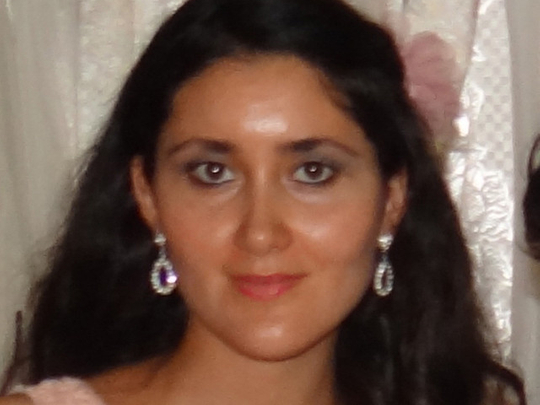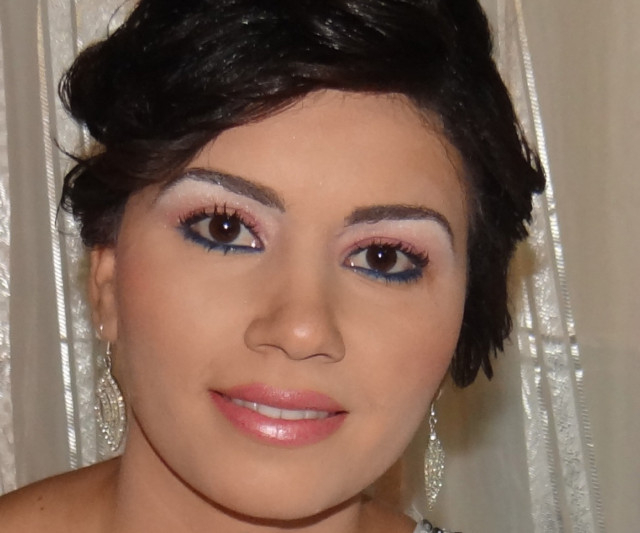
Manama: “One, two, three, dear friends, voila!” Maysa said as she pressed the send button on her laptop after dashing off festive greetings to friends and relatives. “What used to take me hours is now a mere heartbeat away, or just a click away,” she said.
Maysa, like millions of Arabs, now uses social networks to send greetings on religious occasions from the comfort of her room.
Ensconced in her favourite lazyboy chair, she had drafted her message and posted it on her Facebook and Twitter accounts. Most of the people supposed to receive her greetings were on either network or both; so she was sure that they would read the message and respond in kind.
“I have hundreds of friends and people to whom I want to send greetings,” she said. “Writing personal messages or calling them would make really heavy demands on my time and money,of course, so I opt for posting a message of compassion and they do appreciate the thought and the wish.”
For Maysa, there is no question of hurt feelings among those who don’t receive her greetings directly. “Gone are the times when the Eid or birthday message had to be personal and impressively expressive. We now communicate easily, without stifling etiquettes or elaborate designs. Communicating is the soul of the message and not the manner it is delivered. We are all happy about it, so there are no hard feelings or babyish tears rolling down hotly on anyone’s cheeks,” she said, her attention drawn to her laptop as new messages started showing up.
Maysa said that only her parents got the privilege of being sent greetings the the old-world way. “Not only because they are my parents, but also because they are not really versed in IT,” she giggled.
She will meet her sisters and brothers when the family congregates at the parents’ home. “We then have a live exchange of good wishes, but they have already read my greetings.”
Maysa’s story is repeated across countless homes in Bahrain and other Gulf and Arab countries and reflects the empowering status of social networks in people’s lives.
“I live hundreds of kilometres away from my aunts and cousins in Tunisia, so exchanging wishes is done mainly through social networks,” Anissa Ammar, a university student, said. “They are all practically connected and Facebook has made life so much easier. I know that the human dimension is lacking, but it is the most practical way to communicate fast and without having to spend money. We all have convergent views on the idea, so there is no sensitivity problem,” she said.
Anissa’s cousin Mariam said that she had been using Facebook for years to express her views, read others’ opinions and communicate with friends.
“I live in Monastir, a coastal city where people in the 8th century communicated by lighting torches at the top of the fort tower to warn about an impending threat from approaching ships,” said the university student.
“Communication has always been a vital part of our lives and it has of course evolved through the years to reach this wonderful and magic moment where a laptop allows you to communicate with thousands of people at the same time and exchange greetings or share thoughts,” she said.
In Manama, Salem said he was grateful to Facebook for posting birthday reminders. “I used to feel embarrassed whenever I missed a friend’s birthday, but now the matter has become so easy,” he said. “Whenever I log on, I can see if there was a birthday to celebrate and I am always happy to be part of the good wishes crowd.”
The birthday reminder was so popular that the new Google+ featured it. Users now receive a notification on the birthdays of friends and family listed in Google Circles.
However, Lateef, an Indian working in Bahrain, said he still preferred the “old-fashioned” way of exchanging Eid greetings. “The Eid wishes are about true compassion and positive human feelings,” he said. “Greetings carry a genuine message of kindness and consideration. Reducing them to an electronic and cold posting is totally insensitive and inconsiderate and gives the impression of thoughtlessness and a lack of care.”
Jasem, a retiree, insisted that Eid wishes had to be personal and direct. “I simply pick up the phone and call those who are really close to me,” he said. “As for the others, I either go to see them or we meet at the mosque, a friend’s majlis or supermarkets. I use Facebook and other social networks, but not to offer hearty wishes. I believe that doing that simply defeats the whole purpose of exchanging cordial wishes on auspicious occasions that are meant to promote true compassion and genuine understanding between people,” he said.
For Jasem, social networks have “exploited the world’s fascination with technology advances”, diluting genuine feelings and substituting them with pretentious and limited communication that seems to have lost its human quality.














